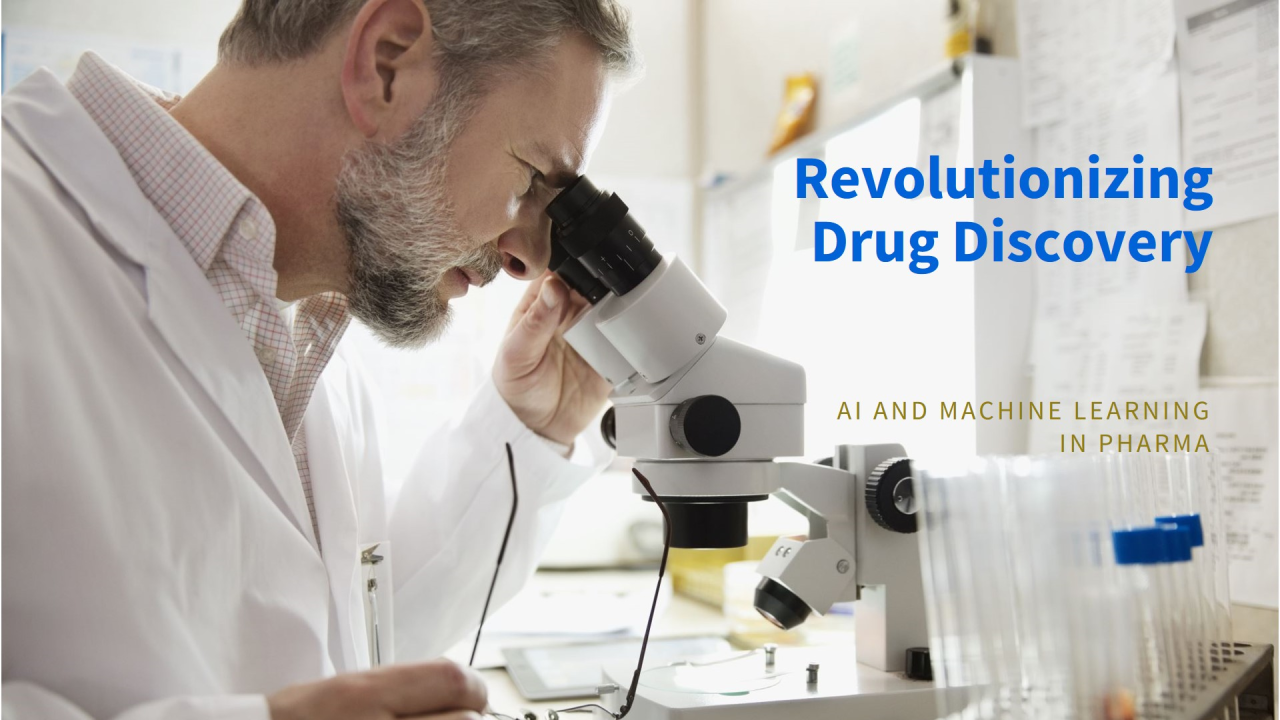
Revolutionizing Drug Discovery: AI and Machine Learning in Pharma
Paul Palmer
Helping Head of Quality / Quality Directors Transition from Crisis Managers to Strategic Leaders with the Core Competence System | LMS | PQS | GxP
AI and Machine Learning (ML) are transforming the pharmaceutical industry by accelerating drug discovery and development. Traditional drug discovery methods are time-consuming and expensive, often taking 10-15 years to bring a new drug to market. AI and ML are now enabling pharma companies to streamline this process by predicting drug interactions, simulating molecular structures, and identifying potential drug candidates faster than ever before.
Key benefits:
Pharma giants like Novartis and Pfizer are already partnering with AI startups to leverage these advancements. Some companies have successfully used AI to identify potential drugs in months rather than years. For example, Pfizer's collaboration with IBM’s Watson AI platform has significantly enhanced their oncology research efforts.
领英推荐
Looking forward, AI's role in pharma is set to grow even further. We’re on the cusp of seeing fully automated labs, where machines design and test drugs with minimal human intervention. AI-driven drug pipelines, where algorithms predict not just drug efficacy but also potential side effects and toxicity, are becoming a reality. This innovation holds the potential to transform not only how drugs are discovered but also how they are tested, approved, and delivered to patients.
AI’s integration into the pharmaceutical industry goes beyond just drug discovery. AI-driven diagnostics, for example, are being used to identify diseases earlier than ever before, improving patient outcomes. Furthermore, AI-powered virtual clinical trials are emerging, where data from wearables, home devices, and electronic health records are used to conduct trials remotely. This could make clinical trials more accessible, inclusive, and faster.
As AI continues to evolve, expect more breakthroughs in biopharmaceutical manufacturing, real-time monitoring of drug performance, and even predictive maintenance of equipment in drug production facilities.
The pharmaceutical landscape is undoubtedly being reshaped by AI, and those who embrace this technological revolution will lead the charge in delivering life-saving therapies at unprecedented speeds.
Associate Professor, Pre-Clinical Department (Biochemistry) at Universiti Kuala Lumpur, Royal College of Medicine Perak (UniKL,RCMP)
1 个月Very informative
Senior Qualit?t Experte in LifeSciences - Interim Manager (Head of / Director Level) - Projekt Manager - Leitender Auditor GxP und ISO - offen auch für ad?quate, Festanstellungen
1 个月Dear Paul, I completely agree with you and share your view on the benefits of using AI and ML in the pharma industry. But to make all this possible, digital transformation and the establishment of integrated management systems with well-networked software systems must be driven forward. Enormous efforts seem still be needed within the pharmaceutical industry in this regard, because AI is truly effective only if the wealth of data to be analysed is coherent and valid.
Great Post --sharing this also https://tinyurl.com/2tdw2d76 www.estarhelper.com/FDACopilot